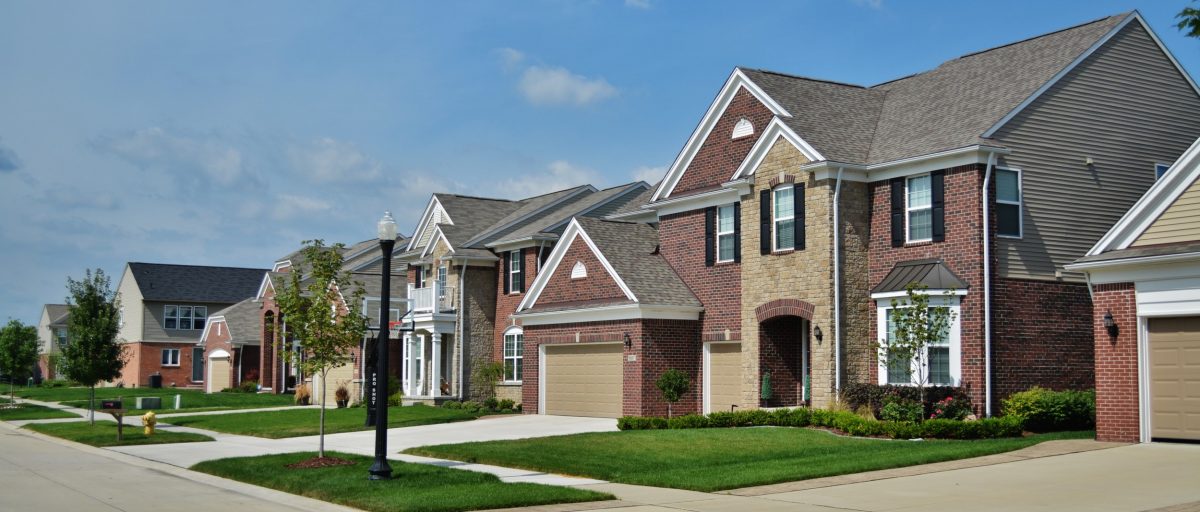When you’re buying a house, you have the sales price, that’s the amount that you’re paying for the property, but if you think that’s the only thing you’re spending money on, I’ve got some bad news for you. Fees, points, credits, escrow, title, there can be so many extra and hidden fees that you go in thinking one number, and you end up paying a lot more so because of that, in this article I’m going to go through the top 10 HIDDEN costs that people don’t tell you about, or maybe they do, but they’re not as well known as just the sales price. Now, this won’t be about hidden fees once you buy the house and start living in it, more of hidden fees when it comes to acquiring the property. So with that being said, let’s look at the top 10 hidden fees of purchasing a house.
Fee number 1 is the home inspection. Wait, you already know about the home inspection, so why am I including it on the list. Well, what you might not know is that you pay for the home inspection immediately, as opposed to at closing, and the home inspection could cost up to $800 depending on the size of the house. It’s important to use a reputable company and inspector. Some real estate agents will push you to use their inspectors that they have a relationship with already. Be aware of this. You don’t want to wear your tinfoil hat thinking everyone is conspiring against you to cover up items on the home inspection. But at the same time, you probably don’t want your real estate agent to be best friends with your home inspector, that doesn’t look good either. The company that I use is US Inspect. This is not an advertisement for them nor was I paid to say this, I just have used them in the past and they have been very thorough.
Fee number two is the appraisal. A common theme that you’ll notice here is that once you go under contract, you’re going to have to start paying money. Some of the items we’ll discuss are fees at closing, but the appraisal fee is one that is due upfront. The D.lender usually requires this to be an upfront payment because even if the loan does not move forward, the appraiser still needs to be compensated. Expect an appraisal to be approximately $400 – $500.
Fee number three is the Earnest Money Deposit. Now, wait, this one is not so much a fee, as it is money that is due upfront that some may not know about. When you submit your offer, in its simplest form, you’re just sending over a piece of paper to the other side saying that you’ll do something. Well, the sellers need more commitment than that. You got to have some skin in the game. You need to submit your Earnest Money Deposit, commonly referred to as your EMD with your contract. This is an amount, usually 1. 5% to 3% of the sales price that is put into escrow and is a good faith deposit that you will go through with the contract. The higher your deposit, the stronger your offer. The EMD will end up going towards your closing costs, but it is due upfront when you submit your offer so be sure you and your agent have a game plan and are ready for the EMD at the time your offer is written.
Fee number four is title insurance. Ahh title insurance, everyone’s least favorite real estate topic. The long and the short of it is this: You probably don’t need it. Just like you probably don’t need health insurance for 6 months, you could probably skip on dental insurance for a year. You probably don’t need car insurance for a year. That last one might be a crime now actually, so don’t quote me on that. But if you’re buying property for $400,000, $200,000, or however much money, you need to do what you can to protect your investment to make sure that no other parties could legally take that property away from you. Because if someone has a lien on that property and you don’t have title insurance that found that out, you might be in some trouble. Title insurance is going to cost about at least $1,000 for lender’s title insurance, and then another $1,000 for owner’s title insurance, this is paid at closing. I’m always going to buy title insurance with properties I purchase just to be on the safe side and I will probably not be happy about paying those fees for it.
Fee number five is the county transfer tax. Whenever you buy or sell property in a jurisdiction, that jurisdiction is going to take their cut of the pie. Now it may only be small cut of the pie, maybe just the crumbs, but hey, that’s your hard-earned money so every little bit matters. It’s going to vary by jurisdiction, but a recent $400,000 property my buyers purchased had a County Transfer Tax of $350 and a County Mortgage tax of $300 totaling about $650 in fees.
Fee number six, I’m going to sound like a broken record but it’s now time for the State Transfer tax. States going to get their money too and it’s going to be a little bit higher. Obviously the state transfer tax will differ by state, but here in Virginia using the same $400k property, the state transfer tax came out to $987. 50, which is 25 cents for every $100 worth of property. Or to make it easier, . 0025 of the sales price. Let’s also not forget about the State Mortgage tax, which is about the same percentage before, that. 0025 of the mortgage not the sales price, so of the mortgage. So on that $400k property, we have $987. 50 in-state transfer and $969. 75 in State Mortgage totaling $1,957. 25. That’s almost $2,000 in fees right there. Some states do not have a state mortgage tax so be sure to check in with your local lender to see if these numbers will apply to you.
Fee number seven is property tax. Lots of taxes here. These are paid at closing and are usually pro-rated for half the year because around here most jurisdictions require you to pay property taxes bi-annually. You can easily look up your city or county’s property tax by going on your jurisdiction’s property tax website. One thing to know is that property taxes are based on the value of the home. So if the sales price you buy your house is more than what it was last sold for, which is usually the case, your property taxes will be going up in the future.
Fee number eight is your homeowner’s insurance premium. The average homeowner’s insurance premium is about $1,000. Unless you’ve done something differently, you can expect to pay this at settlement. Remember, all jurisdictions could be different so be sure you’re in touch with your lender and settlement company to see which items are billed at settlement.
Fee number nine is your HOA transfer fee. If you a purchasing in an HOA, a fee may be due at settlement. And that fee could be up to $300. What does it go towards? Setting up your account, putting you in the system, and that’s about it. If you’re like an HOA president or treasurer or something you might get mad at me for this part but it’s basically a couple of hundred bucks that you’re going to pay and not really get anything back of value. It is what it is.
Fee number 10 is the title services. These are things like the settlement fee, the title abstract, the title insurance binder, and the title closing protection agency. And you can look up all these title fees on your own. That’s not the point of listing them out. The point of listing them out is that this is an additional $550 on top of all the other fees that we’ve covered. And maybe you’ve come across companies or maybe you’ve thought to yourself that you’ll negotiate with the title companies and get them to waive their fees but that’s how they make money. There’s one title company in my area. I think they charge a flat rate of $250 to close. And you need to ask yourself. Do you really want to get the cheapest real estate attorney out there? You’re buying a home. Do you really want to try to save $50 or $100 to get the least expensive company? Title companies have their fees. Some are higher than others.
Try to get a few good recommendations before choosing a title company. Most of the settlements I do now are split settlements where the buyers have their title company and the sellers have. Be sure to do your research because like most things, even real estate attorneys, you get what you pay for. And bonus, we have a bonus hidden fee. The 11th hidden fee when buying a house is for condos and that is your condo move-in fee. I will put in another disclaimer that this will vary by condo and by association. But many condos include the move-in fee at closing. This is going to be anywhere from $100 to in some cases $700 to move-in. If you’re purchasing a condo, your move-in fee, if you have one, is probably going to be anywhere from $100 – $300. There you have it, the 10, or make that 11 hidden fees to buying a house.
Your Favorite Realtor – Nicole Anthony – Keller Williams Realty
Browse our Chattanooga homes for sale listings.







